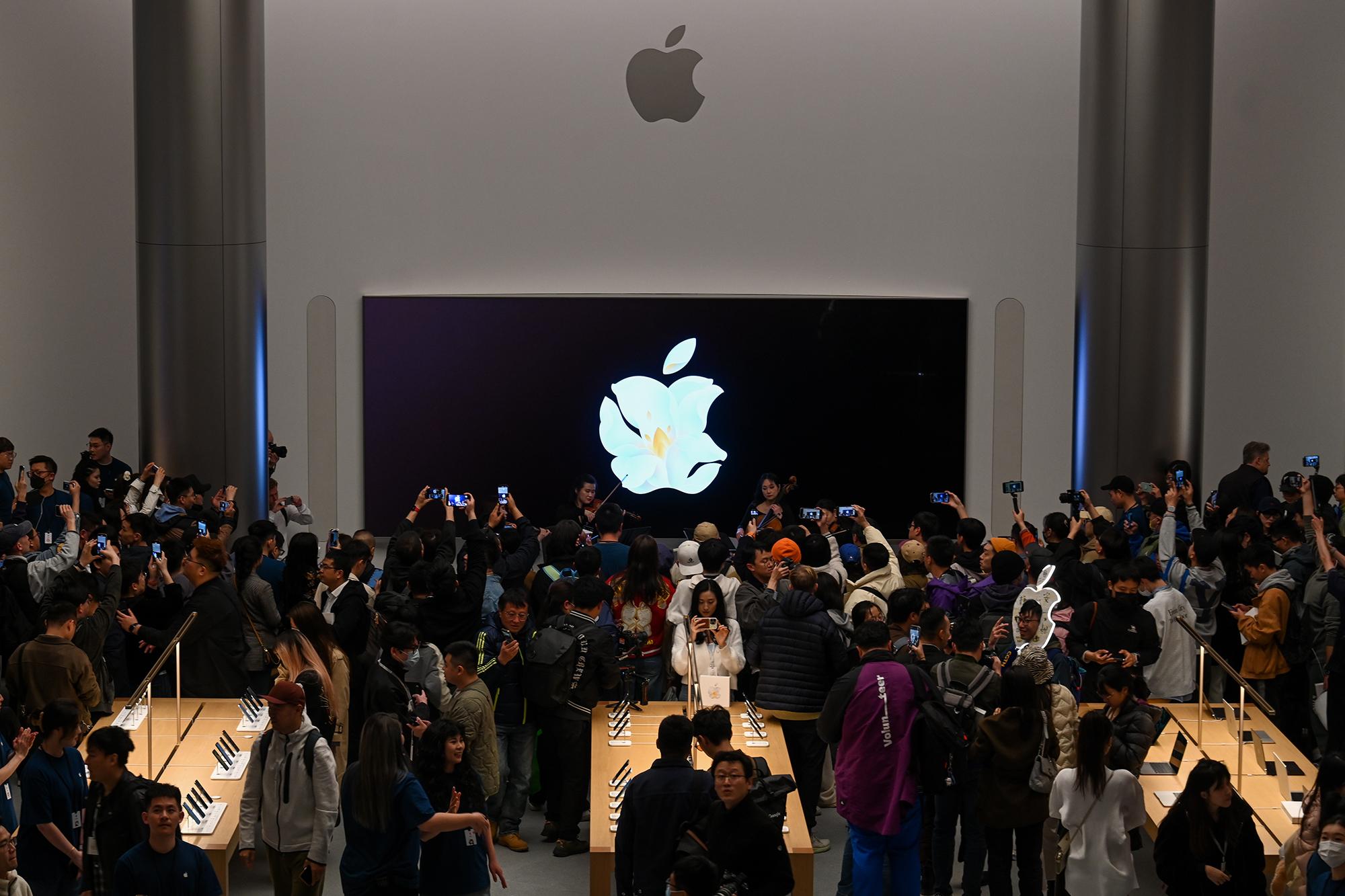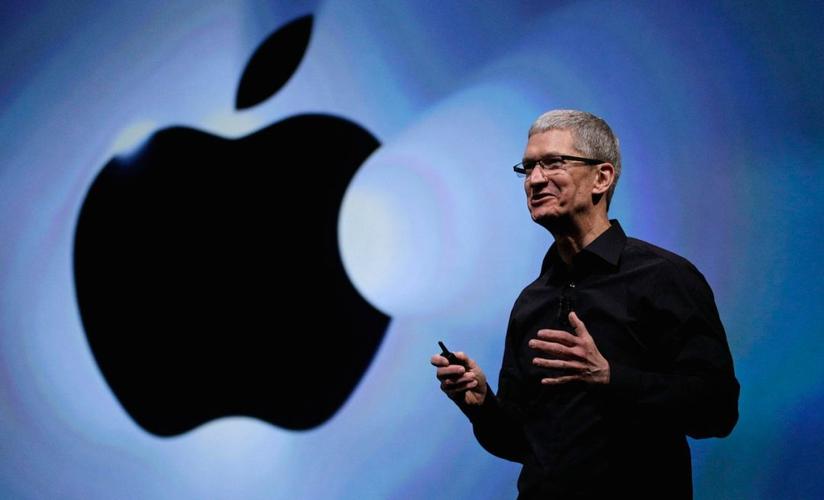WeChat "counters" Apple's App Store tax
![]() 08/09 2024
08/09 2024
![]() 538
538

WeChat and Apple are once again at odds over the Apple App Store tax.
According to recent media reports, Apple is demanding that WeChat and TikTok cooperate to block "payment vulnerabilities" in their apps. Developers and users are exploiting these vulnerabilities to redirect payments outside of Apple's ecosystem, thereby avoiding the 30% Apple tax.
The conflict stems from the growing mini-game ecosystem within WeChat. Further reports indicate that Apple is requiring Tencent to disable the chat function between game creators and players within games, as this feature can also be used to provide payment links. If Tencent fails to comply, Apple may refuse to provide future updates for WeChat.
According to domestic media reports, in some WeChat mini-games, when players recharge, the system directs users to a "customer service chat" interface. After the user sends a recharge instruction to customer service, customer service returns a payment link, and the user can then complete the recharge through WeChat Pay. This avoids Apple's 30% commission.
Apple is clearly agitated about WeChat mini-games.
From the earliest "Jump Jump," to the unexpected hits "Merge Gems" and "Sheep Stack," to the recent popular games like "Daoist Seeker" and "Salty Fish King," WeChat mini-games and the entire mini-game ecosystem have grown into a highly active and significant market.
According to data released at the 2023 China Game Industry Annual Conference, the actual revenue of the game market exceeded 300 billion yuan in the past year, with mini-games contributing up to 20 billion yuan. Additionally, according to various market research agencies, the annual revenue of the WeChat mini-game platform in 2023 was approximately 24.2 billion yuan.
Apple has long charged the highest global Apple tax in the Chinese market. In 2023, the Apple tax contribution rate in the Chinese market was close to a quarter. Facing the potential of a hundred billion yuan mini-game market that could grow to a trillion yuan in the future, Apple is unlikely to give up such a significant profit opportunity.
Especially now, as Apple frequently encounters challenges in the Chinese market, it is eager to find a breakthrough.
According to IDC, in the second quarter of this year, Apple, which had led the market share in China for over a year, dropped directly to fifth place. The domestic mobile phone market share ranking was also reordered, with vivo taking first place, followed by Huawei, OPPO, Honor, and Xiaomi in second to fifth place, respectively.
Based on this, despite revenue and profit increases in other regional markets for Apple in the second quarter, revenue in Greater China decreased by 6.5% year-on-year, contributing only about 17% to total revenue.
Even though Apple has offered unprecedented discounts on iPhones in China this year to promote sales, and opened its largest Apple Store in Asia in Shanghai's Jing'an District, it has still failed to reverse Apple's declining trend.

Apple Store Shanghai Jing'an
If Apple were to collect all taxes from mini-games, even considering only the annual revenue of 20 billion yuan and ignoring other factors, the service revenue from commissions alone would exceed 6 billion yuan. This would significantly boost Apple's growth in the Chinese market and make its financial reports more impressive.
To achieve this, Apple is even willing to resort to "harsh measures."
Overseas, Apple has repeatedly gone to court with well-known game developers over its control of the iOS gaming ecosystem and mandatory collection of lucrative Apple taxes on game revenue.
In 2020, Epic Games' "Fortnite" was removed from the App Store for bypassing "in-app purchases" and enabling third-party payments, leading Epic Games to sue Apple in the United States, demanding improvements to its App Store policies. A year later, Apple compromised, agreeing to allow developers to inform users about alternative payment methods outside of Apple's iOS payment system through emails and other means.
Domestically, WeChat has also successfully forced Apple to "back down." In 2017, Apple demanded that WeChat integrate its public account tipping feature into IAP and pay the Apple tax, as Apple considered public account tipping a "content consumption" behavior. However, WeChat refused to compromise and even temporarily disabled the iOS public account tipping feature.
Ultimately, Apple made concessions, adding a specific clause for public account tipping that stated, "Users can gift money to other users without using IAP," and the iOS public account tipping feature was re-enabled.
However, the mini-game market is much larger, and the interest conflicts with Apple are more complex. Not only can developers earn money from in-game purchases, but platforms can also earn advertising fees from user clicks and developers' investment in advertising. Moreover, seven years have passed, and Apple's market position in China is not as strong as before.

Tim Cook, CEO of Apple
Not only in China or in the gaming industry, but multiple overseas markets are also rising up against unreasonable Apple taxes.
Europe has the strictest regulations. According to the EU's DMA (Digital Markets Act), Apple's iOS ecosystem must open third-party app stores and not force developers to use IAP as a payment channel. Complying with DMA regulations, Apple reduced its tax rate in the EU market in March this year, from 30% and 15% to 17% and 10%, respectively.
There have also been cases in China where consumers have sued Apple for alleged monopoly related to the Apple tax. In January 2021, a Chinese consumer surnamed Jin sued Apple for alleged monopoly due to the Apple tax and the exclusive payment method. The case was filed by the Shanghai Intellectual Property Court. Although the court rejected the plaintiff's demands in the first-instance judgment in May this year, the Shanghai Intellectual Property Court recognized Apple's dominant market position.
Multiple legal experts have analyzed that this is the first time that domestic judicial precedents have recognized Apple's dominant position in relevant markets.
The once impenetrable door marked with the words "Apple tax" is now beginning to crack under global calls and opposition. The "closed ecosystem" established by Steve Jobs for Apple indeed enhanced the fluency and stability of the iOS system. However, in the new competitive landscape of the mobile phone market and under increasingly detailed antitrust regulations, it is becoming increasingly difficult for Apple to easily earn a gross margin exceeding 70% through the Apple tax.
Although WeChat and Tencent have not yet responded to Apple's new demands, not responding or addressing them is also a form of handling. If Apple insists on taking a tough stance, will it really ignore the over 2 billion active users on WeChat and TikTok? And will it suffer backlash from market sentiment?
There are market rumors that Huawei's HarmonyOS has announced it will waive all commissions on the WeChat app and set a 20% commission rate for other developers, lower than Apple's 30%.
The situation is still evolving.







